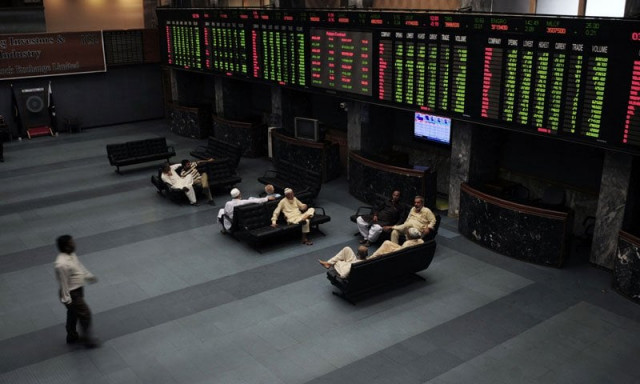As fresh listings stop at PSX, companies need favourable environment
In a high interest rate scenario, stock market provides vital avenue to raise capital to fuel business and job growth

A Reuters file photo of Pakistan Stock Exchange building.
Key points were already being discussed in the mainstream and social media before the bill was officially presented as the government’s finance team engaged with various stakeholders multiple times.
The stock market broker association also suggested a few reforms for the market. Positive signals from the Q-block on meeting those expectations helped the market to recover from the abyss by adding 3,000 points to the benchmark index since hitting the lows of December 2018.
So much has been said and written since then about what will be the implications of these reforms in the future. However, during his fiery speech, the finance minister took a breather and asked a question from his fellow lawmakers “whether the stock market is important for the economy or not?” Let’s explore the seemingly innocent question to some extent.
Since the establishment of the world’s first stock market in Amsterdam in 1602, a phenomenal growth in depth and market capitalisation of global equity markets is something that occurred in sync with the overall GDP growth of world economies. So the appropriate question could rather be as to how we can use the stock market to help Pakistan’s economy to grow.
Usually, a government in a rather selective manner uses the stock market’s KSE-100 index levels to highlight that the economy is on the right track. However, if we look at index constituents, they do not reflect the economy in a true sense.
The KSE-100 index is rather a market capitalisation-based index and top movers of the index are in oil and gas and banking sectors. This creates distortion when the index is used to measure the performance of national economy, which is not truly represented in the index composition such as agriculture, food and services.
Also, for a very long time, the listing of new companies in the stock market has come to a grinding halt. The listing process is complicated and there is not much incentive to get listed in terms of tax benefits and the added watchdogs from shareholders and compliance requirements from regulators are a few major stumbling blocks, especially for small and medium enterprises (SMEs).
There was a long pending initiative to set up a separate SME board in the Pakistan Stock Exchange (PSX) with less stringent requirements to promote SMEs to get listed and raise capital to expand their business.
In a high interest rate environment and rising cost of borrowing, the option to turn to capital market for raising capital make more financial sense if the process of listing is simplified and right incentives are provided to businesses, especially the SMEs.
The measures announced in the recent finance bill for the stock market are good to expand trading and investment activities due to the removal of 0.02% tax on trading and carryover of losses up to three years. However, there were no incentives to encourage new listings and promote stock market as an avenue to raise capital to fuel expansion and growth, and to create more jobs.
Also, it is high time for the PSX management to review the performance of existing listed companies, which do not fulfill the listing requirements such as publishing financial results, maintaining a minimum free float, etc.
There are many listed companies where not even a single share is traded and some of them are on the verge of default, posing a serious risk to the investors. The Securities and Exchange Commission of Pakistan (SECP) as an apex regulator and the PSX as a facilitator have to work together as a team to create a more enabling environment free from cumbersome regulatory burdens to encourage fresh listing of companies in order to promote stock market as a vehicle to propel economic growth.
The writer is a financial market enthusiast and attached to Pakistan stock, commodity and debt markets
Published in The Express Tribune, February 4th, 2019.
Like Business on Facebook, follow @TribuneBiz on Twitter to stay informed and join in the conversation.


















COMMENTS
Comments are moderated and generally will be posted if they are on-topic and not abusive.
For more information, please see our Comments FAQ